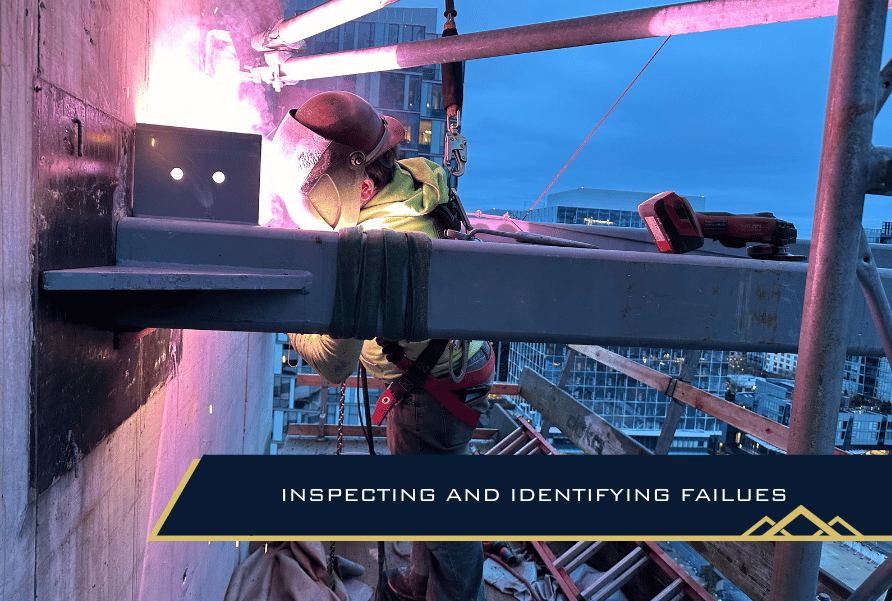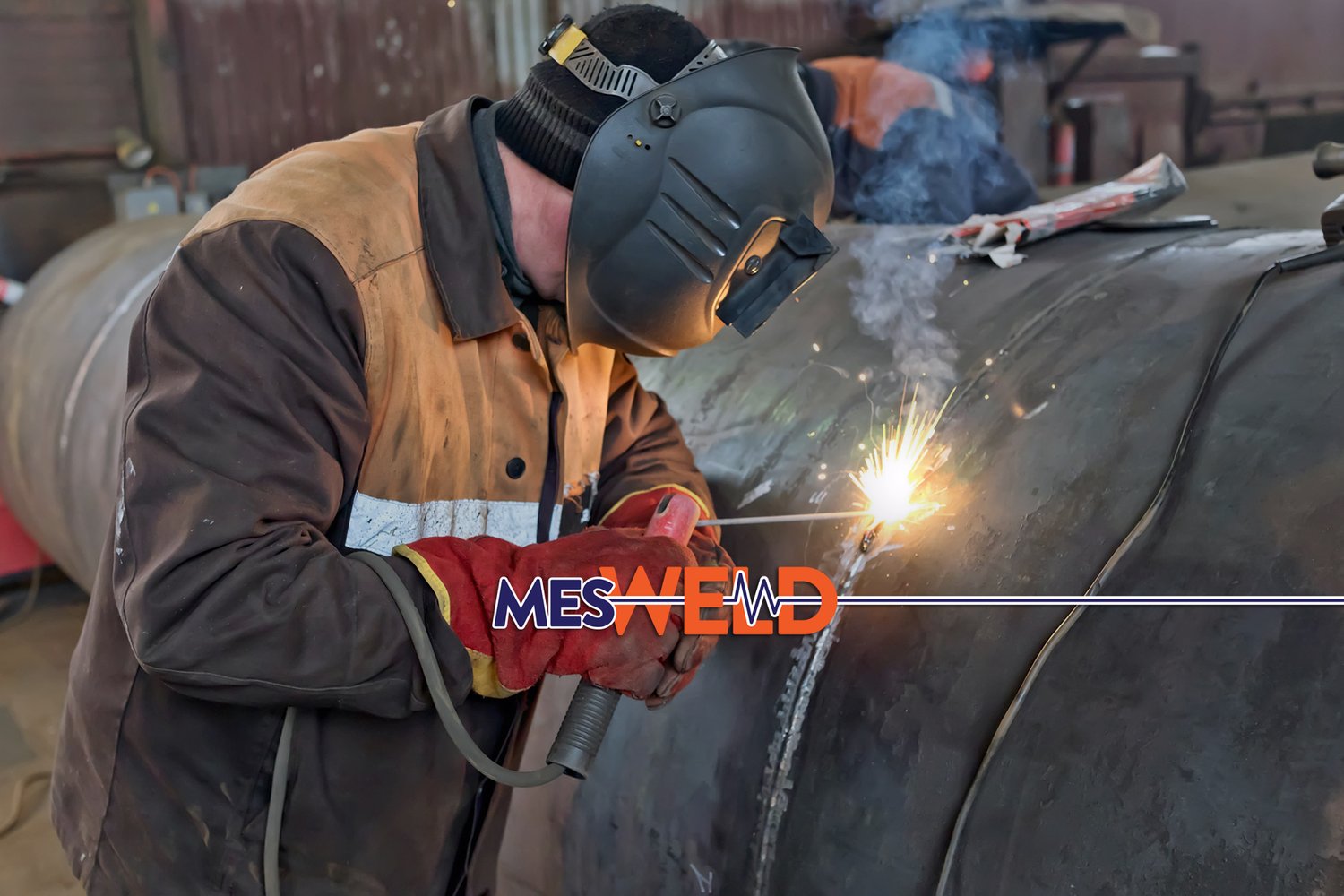A Comprehensive Overview to Welding Inspection Madison Standards
A Comprehensive Overview to Welding Inspection Madison Standards
Blog Article
The Value of Thorough Welding Assessment in Industrial Applications
In the world of commercial applications, the significance of precise welding inspection can not be overstated. It plays a vital function in making certain the architectural integrity and long life of welded parts. Advanced non-destructive screening strategies enable the early discovery of possible issues, such as fractures and incomplete fusion, which, if left untreated, can result in devastating failures. In addition, adherence to stringent sector requirements not only ensures quality however also develops customer confidence. As we explore the diverse advantages of thorough welding inspections, one need to consider the wider effects on safety, integrity, and cost-effectiveness in industrial procedures.
Enhancing Architectural Stability
When it comes to welding assessment in industrial applications, enhancing structural integrity is paramount. The key objective of welding assessment is to make sure that the welds are qualified of birthing the anticipated tons and anxieties they will certainly run into in service.
The importance of keeping architectural stability in welded frameworks can not be overstated. Poorly implemented welds can cause devastating failures, causing expensive repairs, downtime, and also endangerment of human lives. For that reason, assessors play an essential function in the lifecycle of commercial components, giving assurance that the welding procedure provides the desired toughness and sturdiness.
Furthermore, advanced technologies, such as phased variety ultrasonic testing and electronic radiography, offer boosted abilities in identifying prospective weak points, enabling rehabilitative measures before concerns intensify. By focusing on the integrity of welds with thorough inspection, markets can make certain operational performance and extend the longevity of their facilities.
Recognizing Welding Defects
Recognizing welding flaws is an essential element of making sure the security and reliability of welded structures. These issues can jeopardize the honesty of the entire assembly and, if left unaddressed, may bring about disastrous failings. Usual welding issues consist of porosity, splits, insufficient combination, and undercutting. Each of these issues develops from certain causes, such as inappropriate welding methods, contamination, or inadequate warm control.

Skilled examiners make use of both visual exam and advanced non-destructive screening (NDT) approaches, such as ultrasonic or radiographic testing, to identify these defects. The prompt identification and correction of welding defects are necessary to maintain the structural integrity and durability of commercial parts.
Guaranteeing Compliance Specifications
Conformity with well-known criteria, such as those supplied by the American Welding Society (AWS) and the International Organization for Standardization (ISO), ensures that welds fulfill minimal security and quality requirements. These requirements include a wide array of requirements, including product requirements, welding treatments, and credentials of welders.
Routine audits and inspections are crucial in confirming conformity. Examiners must have an extensive understanding of the pertinent standards and be experienced at making use of different non-destructive screening (NDT) techniques to review weld high quality. By making certain that welding practices line up with conformity standards, companies reduce the risk of non-conformity, which can lead to lawful obligations and safety and security risks.
Additionally, maintaining compliance not only safeguards architectural integrity yet additionally enhances a business's reputation in the industry. Clients and stakeholders are most likely to depend on companies that consistently demonstrate a commitment to high quality and safety via extensive conformity. Hence, making certain compliance requirements is an essential component in the successful application of welding in commercial applications.
Minimizing Maintenance Prices

The application of innovative non-destructive screening (NDT) methods, consisting of ultrasonic, radiographic, and magnetic bit inspections, improves the ability to identify subsurface imperfections without jeopardizing the structural honesty of elements. By employing these methods, industries can substantially expand the service life of their tools, decreasing downtime and the linked monetary worry of maintenance tasks.
In addition, a durable welding inspection routine sustains the optimization of maintenance schedules, moving from reactive to predictive upkeep strategies. This proactive approach not just cuts unexpected failures yet also enhances source allotment, guaranteeing that upkeep efforts are focused and reliable. Ultimately, the investment in extensive welding examination is countered by the substantial cost savings understood via decreased maintenance demands, contributing positively to the general functional performance of commercial enterprises.
Improving Precaution
Although safety and security is an extremely important issue in industrial operations, accomplishing optimum safety and security criteria requires a dedicated concentrate on the top quality and reliability of welded structures. Welding evaluation plays an important duty in this context, as it makes certain that all links and joints satisfy rigid safety and security standards. Comprehensive examinations aid recognize flaws such as cracks, porosity, or incomplete blend that can compromise structural integrity. Such defects, if left unaddressed, present substantial threats, possibly causing tragic failings.
To enhance safety measures, taking on sophisticated non-destructive testing (NDT) strategies is important. official source Methods like ultrasonic screening, radiographic testing, and magnetic fragment assessment enable detailed assessment without harming the structure. These technologies make it possible for inspectors to detect concealed defects early in the building and construction process, helping with prompt restorative activities. Executing a durable quality control Learn More Here system that consists of normal training for examiners and welders guarantees adherence to developed safety criteria.
Lastly, promoting a culture of security within the company stresses the relevance of extensive welding examinations. Urging open interaction and collaboration among welders, assessors, and designers adds to a common dedication to safety and security quality. Welding Inspection Madison. In doing so, industries can safeguard their operations, protect personnel, and maintain public trust

Conclusion
Extensive welding inspection is crucial in industrial applications, dramatically enhancing structural integrity and integrity. Ultimately, the persistent implementation of welding examinations plays a vital duty in maintaining operational performance and safety in commercial setups.
As we explore the multifaceted advantages of persistent welding examinations, one must think about the more comprehensive ramifications on security, integrity, and cost-effectiveness in industrial procedures.
The key objective of welding assessment is to guarantee that the welds are qualified of birthing the anticipated loads and stress and click to read anxieties they will certainly run into in service. Effective welding inspection plays an important duty in minimizing these costs by guaranteeing the stability and long life of welds, therefore mitigating the danger of early failings.Detailed welding inspection is essential in industrial applications, substantially improving architectural honesty and integrity. Inevitably, the attentive implementation of welding examinations plays a crucial duty in keeping functional performance and safety and security in commercial setups.
Report this page